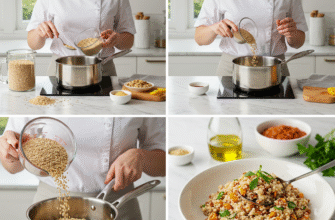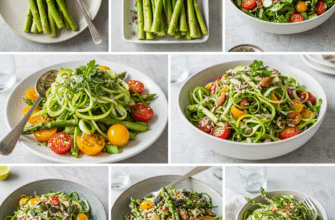Deciding between whipping up a meal in your own kitchen or heading out to a restaurant is a daily dilemma for many. It’s more than just choosing what to eat; it’s a choice between convenience and control, budget and indulgence, routine and novelty. Both options have their distinct advantages and disadvantages, shaping not only our diets but also our wallets, schedules, and even our social lives. Understanding the nuances can help navigate this choice more effectively.
The Comforts and Control of Home Cooking
Stepping into your own kitchen to prepare a meal offers a unique set of benefits that are hard to replicate elsewhere. Perhaps the most significant advantage is the
absolute control you have over what goes onto your plate. You select the ingredients, meaning you can prioritize freshness, opt for organic produce, choose leaner cuts of meat, or accommodate specific dietary restrictions and allergies with complete certainty. Worried about hidden sugars, excessive sodium, or specific oils? At home, you’re the chef, the menu planner, and the quality controller rolled into one.
This control extends naturally to portion sizes. Restaurant portions, particularly in certain parts of the world, have grown considerably over the decades. It can be challenging to gauge a reasonable serving size when presented with a heaping plate. At home, you can dish out portions that align with your actual hunger levels and dietary goals, making it easier to manage intake without feeling pressured to clear the plate or deal with the temptation of oversized servings.
Financial Savvy: The Economic Edge
Let’s talk about the budget. Eating out frequently can put a significant dent in your finances. When you dine at a restaurant, you’re not just paying for the food itself; you’re covering labor costs (chefs, servers, dishwashers), rent, utilities, ambiance, and, of course, the restaurant’s profit margin. Cooking at home, while requiring an initial investment in groceries and pantry staples, is almost always more economical on a per-meal basis. Buying ingredients in bulk, repurposing leftovers, and avoiding the high markup on beverages alone can lead to substantial savings over time. Think about the cost of a simple pasta dish at a restaurant versus making a large batch at home that could feed a family or provide multiple meals for an individual.
Cooking at home grants you full transparency and authority over every ingredient. You decide the exact amount of salt, sugar, and fat, ensuring meals align perfectly with your preferences and dietary needs. This level of detailed control over freshness, quality, and composition is something rarely matched by restaurant dining.
Beyond the Plate: Skills and Connection
Preparing your own food is also a valuable life skill. It fosters independence and self-sufficiency. Moreover, cooking can be an incredibly creative and rewarding process. Experimenting with flavors, trying new recipes, and mastering techniques can be a fulfilling hobby. It offers a chance to unwind after a busy day, engage your senses, and create something tangible and delicious. It doesn’t have to be gourmet; even simple meals prepared with care can bring a sense of accomplishment.
Furthermore, cooking and eating at home can strengthen bonds. The act of preparing a meal together, whether with a partner, children, or roommates, can be a fantastic communal activity. Sitting down around a familiar table, sharing food made with care, encourages conversation and connection in a relaxed environment, away from the hustle and bustle of public dining spaces.
The Appeal of Dining Out: Convenience and Experience
Of course, eating out holds undeniable appeal, and convenience is often top of the list. After a long workday or during a busy week, the thought of shopping, prepping, cooking, and then cleaning up can feel overwhelming. Restaurants offer an escape from these chores. You walk in, order, eat, pay, and leave. This saving of time and effort is a major draw, providing a much-needed break from domestic duties.
Variety, Ambiance, and Social Hubs
Restaurants are gateways to culinary exploration. They offer the chance to sample cuisines and dishes you might not have the skills, ingredients, or inclination to prepare at home. From exotic international flavors to specialized cooking techniques, dining out expands your palate and introduces new taste experiences. It’s an opportunity to enjoy dishes crafted by professional chefs who have honed their skills over years.
Beyond the food itself, restaurants provide ambiance and a change of scenery. Whether it’s a bustling cafe, a quiet fine-dining establishment, or a lively bistro, the environment is part of the package. It transforms eating from a mere necessity into an experience. Restaurants also serve as vital social hubs. They are default locations for dates, birthday celebrations, business meetings, and catching up with friends. Sharing a meal out can be a treat, a way to mark special occasions, or simply a convenient way to socialize without anyone having to host.
Professional Touch and Breaking Routine
Sometimes, you just want a dish prepared by an expert. Certain meals, whether it’s perfectly executed sushi, a complex French sauce, or authentic wood-fired pizza, benefit from specialized equipment and professional skill that most home kitchens lack. Dining out allows you to enjoy these culinary creations without the steep learning curve or investment in tools.
Eating out also provides a break from the monotony of everyday meals. If you find yourself stuck in a cooking rut, a restaurant meal can offer inspiration or simply a welcome departure from your usual fare. It adds variety and excitement to your dining routine.
Striking a Healthy Balance
For most people, the ideal scenario isn’t an extreme commitment to one or the other, but rather finding a sustainable balance between home cooking and dining out. The “right” balance is deeply personal and depends heavily on individual circumstances, including lifestyle, budget, available time, cooking skills, and social preferences.
Someone with a demanding job and long commute might rely more on the convenience of restaurants or takeout during the week, perhaps reserving home cooking for weekends. A family on a tight budget might prioritize homemade meals most nights, treating restaurant visits as special occasions. A passionate home cook might relish daily kitchen adventures but still enjoy exploring the local dining scene occasionally.
Making mindful choices is key, regardless of where your meal originates. When eating out, you can still make conscious decisions – looking for places with more transparent menus, opting for grilled over fried, requesting sauces on the side, or paying attention to portion sizes and taking leftovers home. When cooking at home, it’s about planning meals to fit your schedule, utilizing leftovers efficiently, and perhaps simplifying recipes on busy nights rather than defaulting to less ideal options.
Ultimately, both preparing meals at home and dining out offer valuable benefits. Home cooking provides unparalleled control, potential cost savings, and opportunities for skill development and connection. Eating out delivers convenience, culinary variety, unique experiences, and social opportunities. Recognizing the strengths of each allows you to leverage them thoughtfully, creating a varied, enjoyable, and manageable approach to how you eat.









